Theresa May has frustrated the leaders of Scotland and Wales by refusing to reveal any details of her plan for Brexit or assure them that tariff-free trade with the EU will continue.
Nicola Sturgeon, the first minister of Scotland, left a joint ministerial council for the leaders of the home nations, saying she thought May did not have a coherent plan for how to take the UK out of the EU.
“I don’t know any more now about the UK government’s approach to the EU negotiations than I did before I went in to the meeting,” she said. “At the moment, it doesn’t seem to me like there is a UK negotiating strategy, which is one of the sources of great frustration.”
Sturgeon is pressing for May to give Scotland continued access to the EU single market even if the rest of the UK opts to leave, but said she had been given no clues as to whether this was possible.
“Now we’re hearing the words that say she will consider options like that, but so far, those words are not matched by substance and action,” Sturgeon said.
She added: “But what I’m not prepared to do as first minister is simply stand back and watch Scotland be driven off a hard-Brexit cliff edge.”
Separately, Carwyn Jones, the Labour first minister of Wales, told the Guardian “nothing concrete came out of the meeting and I am none the wiser as to what her proposals are”.
“The problem seems to be that they don’t know what to do next,” he said, adding that May had declined a direct opportunity to reassure him that businesses would continue to trade without tariffs with the rest of the EU.
“Time is not in our favour and we need to have some kind of idea about what the basis of the negotiation will be.”
Jones said he feared there was now a serious danger of the UK leaving the EU without having negotiated a trade deal and having to fall back on World Trade Organisation tariffs.
The prime minister met Sturgeon, Jones and Northern Ireland’s leader and deputy leader, Arlene Foster and Martin McGuinness, in Downing Street on Monday with an offer of a direct input over Brexit, but received a sceptical response from Sturgeon and Jones.
Foster, from the Democratic Unionist party, was more positive, telling reporters that it had been “a very useful engagement”.
It was the first gathering of the joint ministerial committee which brings together the leaders of the UK’s devolved administrations since the Brexit vote on 23 June.
May has been warned to expect a “full-blown constitutional crisis” unless agreement on the terms of Brexit can be reached between the government and the UK’s devolved administrations. Sturgeon in particular has said she is prepared to push for another independence referendum if Scotland, which voted to remain, is denied full access to the single market.
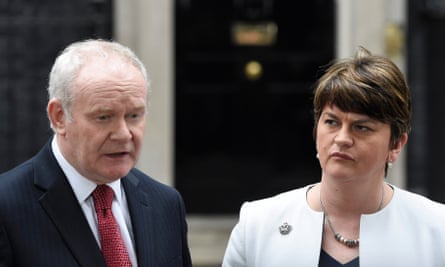
After the meeting, May would only say she wanted to “strike a bespoke Brexit deal that works for the whole of the UK”. But earlier, No 10 rejected the idea of Scotland staying part of the single market while the rest of the UK had a different relationship with Brussels, saying the prime minister wanted a unified approach.
After the meeting, May reported back to parliament on her first EU summit, where she promised MPs a series of debates on the “high-level principles” of her negotiating strategy.
However, she did not reveal what these are or when they will be made public so MPs can discuss them. The debates do not go so far as to allow parliament to have a vote on No 10’s Brexit strategy, which Labour, the Lib Dems and some Tory MPs are demanding before article 50 is triggered to take the UK out of the EU.
During the debate, May appeared to suggest she favours an approach of offering bilateral free-trade deals to EU member states when pushed by one eurosceptic MP.
Sir Edward Leigh, Tory MP for Gainsborough, asked: “Is not our objective this: that we want to conclude, having adopted every last EU law to our laws on Brexit day, a free trade agreement that is overwhelmingly in the interests of the rest of Europe? And incidentally, this would do so much for the poorest nations in the world as we lead the battle for a free trade and prosperous world.”
May stood briefly to reply: “I agree.”
However, she then appeared to backtrack on the clear answer when Tory MP Steve Baker said: “I understood from your answer ... that there is no proposition to put tariffs between us and our European partners. Will you confirm that you’re willing to offer them a free trade deal bilaterally?”
May replied: “At risk of repeating yet again what I have said previously, what we want to get is the right deal. I want to get the best possible deal for the maximum possible opportunities for British businesses to be able to trade within the single market, to operate within the single market and trade with it in both goods and services.
“That is our clear aim. We want to be able to have that trading, good trading relationship, with the European Union. But there are other things we will doing at the same time, such as ensuring we can control the movement of people from the European Union into the UK.”
May also dismissed the idea that the collapse of an EU trade deal with Canada would have any impact on the UK’s ability to negotiate one with Brussels.
“To those who suggest that these difficulties have a bearing on our own future negotiations, I would remind them that we are not seeking to replicate the existing model that any other country has in relation to its trade with the European Union. We will be developing our own British model.”
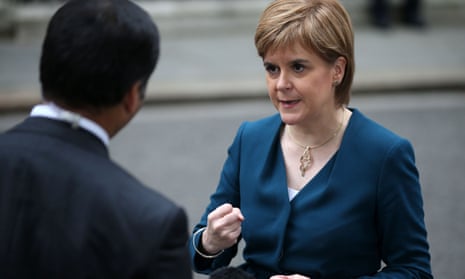
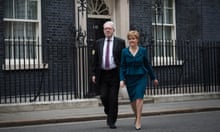
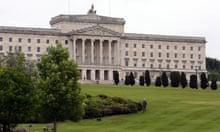
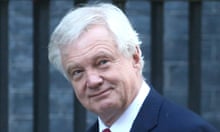



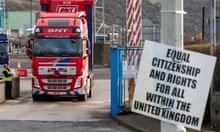
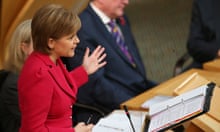
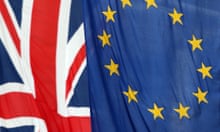
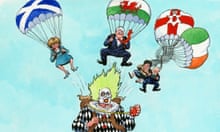
Comments (…)
Sign in or create your Guardian account to join the discussion